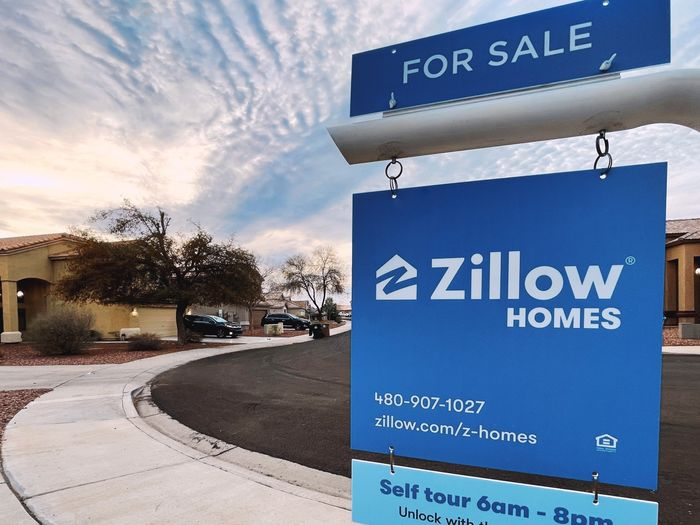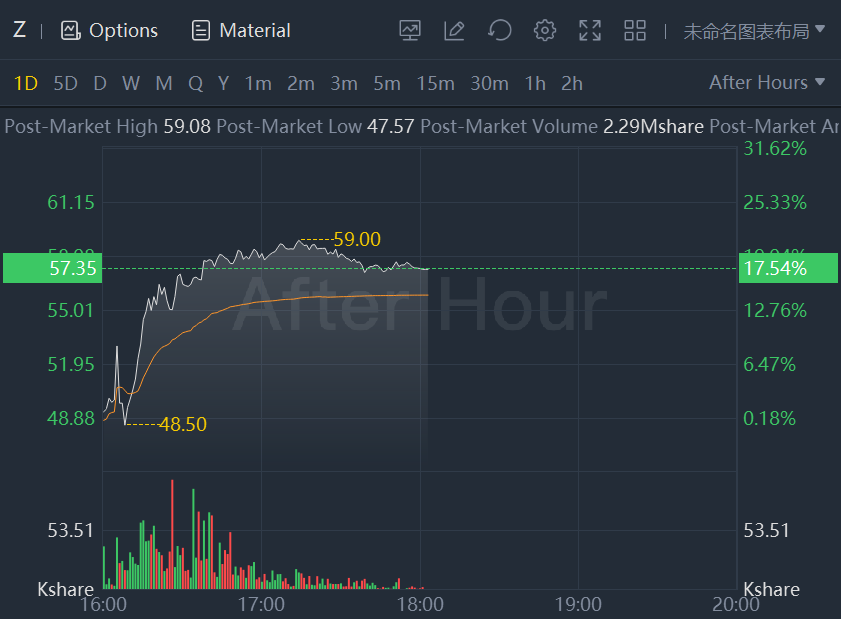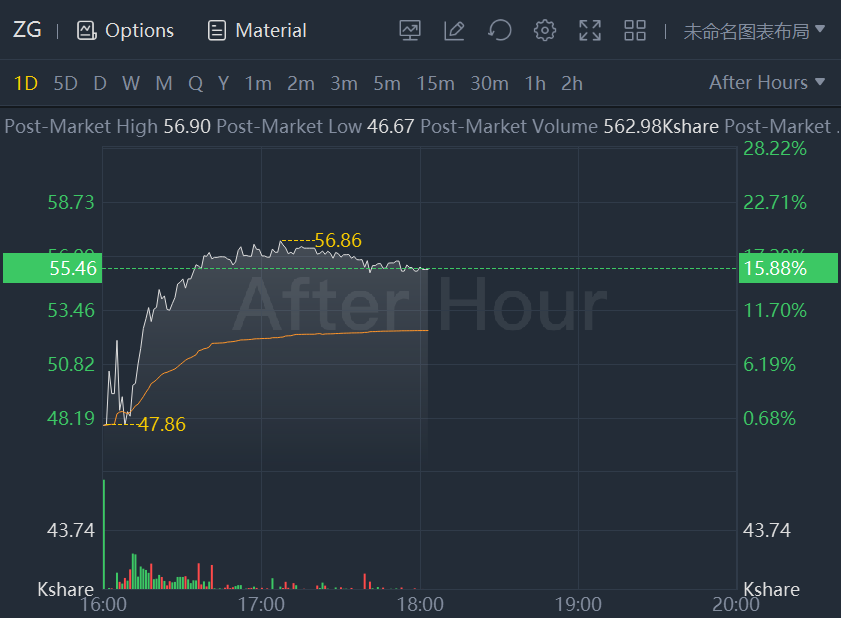Zillow sells more than 8,300 homes in fourth quarter, averaging a loss of more than $27,000 apiece, but wind-down of iBuying business leads to record revenue and a slight beat on forecast

Three months after a home-flipping initiative imploded in an embarrassing public display, Zillow Group Inc. reported record revenue from selling the underwater homes Thursday and predicted big sales at the start of 2022, sending shares surging in late trading.
Zillow reported fiscal a fourth-quarter loss of $261.2 million, or $1.03 a share, on record revenue of $3.88 billion, up from $789 million a year ago. After adjusting for stock compensation and more than $70 million in impairment and restructuring costs, Zillow reported a loss of 42 cents a share, after posting adjusted earnings of 41 cents a share a year ago.
Analysts on average expected an adjusted loss of 90 cents a share on sales of $3.01 billion, according to FactSet. Zillow shares rose nearly 15% in after-hours trading immediately following the release of the results, after closing with a 1.8% decline at $48.79.
Zillow shares have plunged 24% in the past three months, since executives admitted in their previous earnings report that a business created to flip homes had purchased far too many homes at too-expensive prices. At that time, Zillow executives expected to lose more than half a billion dollars and lay off about a quarter of staff as a result of the massive miscalculation.
Shares bounced back a bit after executives said in December that they had already found buyers for more than half the homes they still owned, and expected to use millions recouped from the sales to repurchase stock. In Thursday's report, they said the effort is still tracking ahead of expectations, and will result in positive cash flow, despite disclosing an average loss of $27,609 on 8,353 homes sold in the fourth quarter, a total loss of more than $230 million.
"We've made significant progress in our efforts to wind down our iBuyingbusiness -- selling homes faster than we anticipated at better unit economicsthan we projected," Chief Executive Rich Barton and Chief Financial Officer Alan Parker wrote in a letter to investors. "The wind-down process is running smoothly and efficiently, and we expect it to generate positive cash flow."
Barton and Parker bet on iBuying as a key part of what they called "Zillow 2.0," but said in Thursday's letter that the dissolution of that business had not changed the strategy.
"Our mission has been steady, and our vision for Zillow 2.0 remains unchanged," they wrote.
Instead of being such an integral part of the home-purchasing process as iBuyers, Zillow executives now want to build an essential mobile app that can help buyers and sellers navigate the process.
"To execute on this strategy, we are focused on building the 'housing super app' -- an integrated digital experience in which Zillow connects all the fragmented pieces of the moving process and brings them together on one transaction platform," they wrote. "We are well-positioned to execute here, given our position in the hearts and minds of consumers today, with more than 3x the number of daily active app users than our closest competitor."
Zillow's iBuying business had helped boost revenue, and the company's forecast showed that it will be a different business after dropping the effort. In 2021, Zillow recorded revenue of more than $8 billion, but executives said Thursday their long-term goal is to hit $5 billion in revenue in 2025 after dumping the home-flipping business.
For the first quarter of 2022, Zillow executives guided for total revenue of $3.12 billion to $3.44 billion, with a midpoint of $3.3 billion, while analysts on average were expecting revenue of $3.26 billion. They predicted adjusted Ebitda of $124 million to $174 million, while analysts were predicting a loss by that standard of $13 million, according to FactSet.




